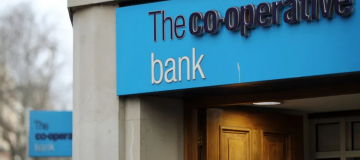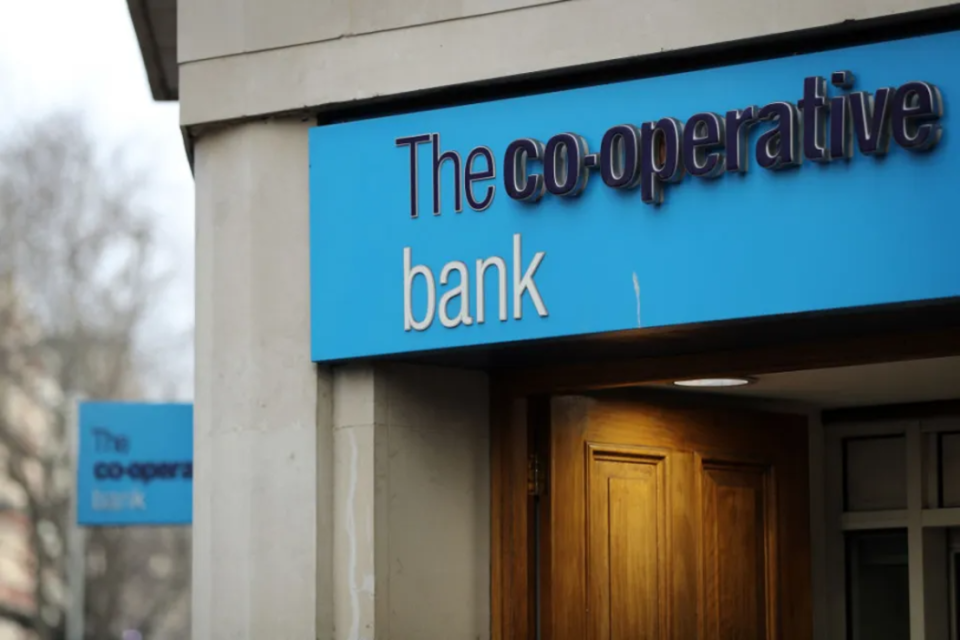

Coventry Building Society has agreed terms to buy The Co-operative Bank for £780m as a wave of consolidation sweeps through the mid-sized banking sector.
In a joint statement on Thursday, the firms said they had reached an agreement on the non-binding heads of terms for a potential cash acquisition by Coventry, the UK’s third-largest building society, after they entered exclusive talks in December.
If completed, the transaction would effectively remutualise Co-op Bank and create a combined group with around £89bn in assets, roughly the current size of Britain’s sixth-biggest high street bank Virgin Money.
Already one of the country’s biggest mortgage providers, the tie-up is also set to give Coventry a major boost in the personal current account and business banking markets, with Co-op Bank currently boasting around 2.6m retail customers and more than 93,000 small and medium-sized enterprises.
Some challengers to the UK’s biggest banks have become flush with cash on the back of interest rate hikes over the last two years, enabling them to pounce on other mid-sized lenders struggling with higher costs.
News of Coventry’s potential acquisition comes shortly after fellow building society Nationwide struck a £2.9bn deal to buy Virgin Money in rare example of a mutual buying a listed company.
Coventry is likely to face questions at its annual meeting next week on its decision not to put the potential merger to a vote among its roughly two million members. Nationwide, which has more than 16m members, has recently come under fire for making the same decision.
Coventry said it had “considered carefully whether a member vote is required” under the Building Societies Act 1986 and determined that it was not.
“In coming to this decision, the board has been informed by member surveys and focus groups which clearly signalled their priorities as maintaining our value proposition and service quality,” the lender said.
Under the agreed terms, up to £125m of the total cash consideration would be deferred for three years subject to the future performance of Co-op Bank.
The 152-year-old lender was rescued from a potential taxpayer bailout in 2013 after it secured a lifeline from American hedge funds to plug a £1.5bn hole in its balance sheet, revealed after an aborted attempt to buy 632 branches from Lloyds.
Co-op Bank agreed a further £700m rescue package with investors in 2017, resulting in the bank becoming fully owned by private equity rather than The Co-operative Group.
The bank has been in discussions with several firms over possible consolidation in recent years. In 2021, it approached Spanish lender Banco de Sabadell over buying rival high street bank TSB, but talks failed to progress.
Co-op Bank’s pretax profit fell to £71.4m in 2023 from £132.6m in 2022, largely driven by costs related to the potential takeover and “exceptional redress on legacy mortgage business”. Last month, it announced plans to cut around 400 jobs in a bid to reduce costs.
Meanwhile, Coventry posted a pretax profit of £474m last year, up from £371m in 2022, on the back of higher interest rates and growth in mortgages and savings.
Coventry’s chief executive Steve Hughes said on Thursday: “The Co-operative Bank is a financially stable, profitable organisation with a shared heritage and products and services that complement our own.
“Its customers, colleagues, branches, mortgages and savings balances, and the additional products and services it provides, will make us stronger and enable us to continue offering the value and service that matters to members and customers alike.”





